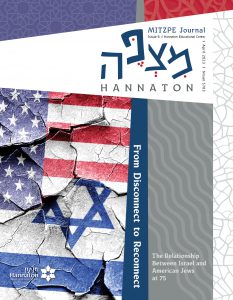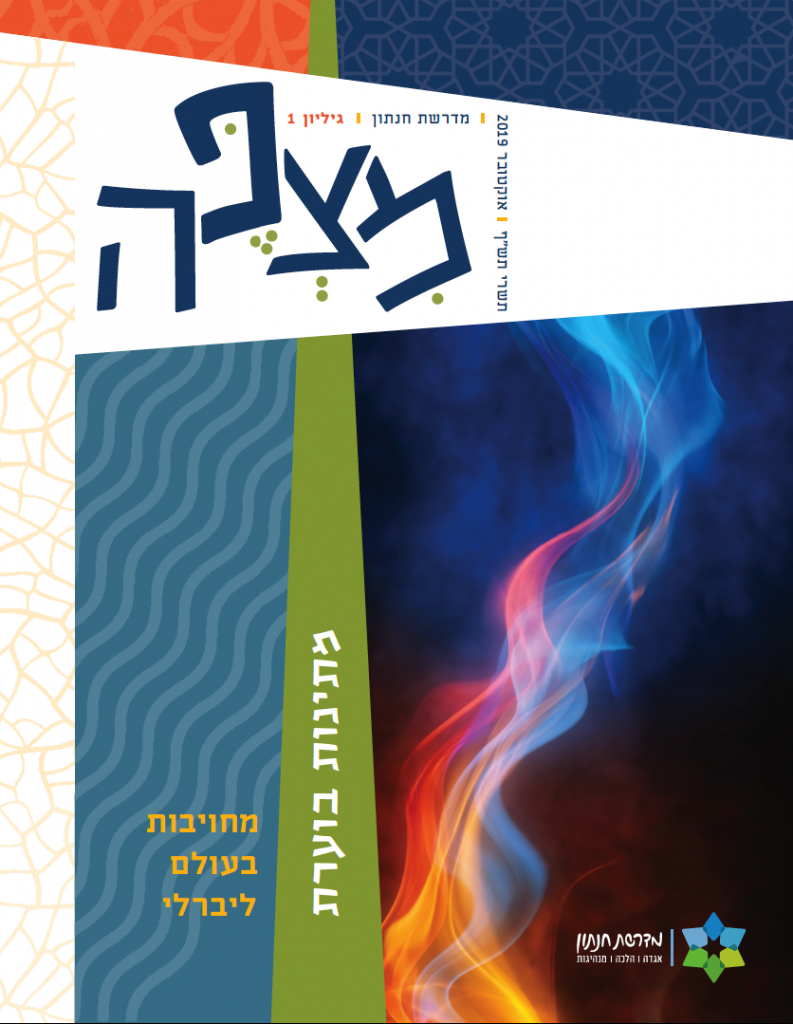I first heard the phrase “the silent Holocaust” in the corridors of the Jewish Agency. The term refers to the loss of Jewish identity among Diaspora Jewry. According to projections, over the next 30 years, 80% of Diaspora Jews will lose their Jewish identity and their connection to Israel. These figures primarily describe American Jews. Of the five million Jews currently living in America, in 30 years only one million will remain who define themselves as connected to their Judaism and to the State of Israel. Of course, we cannot compare the Holocaust of Europe’s Jews and the trends in world Jewry today. Jews choose to marry non-Jews, or to sever their connection with Jewish tradition, the Jewish people, and the Jewish state, out of their own free will. The phrase “silent Holocaust,” with its intentionally harsh connotations, alludes merely to a comparison of the numbers: the diminished numbers of the Jewish people.
The Hovevei Zion (Lovers of Zion) association was founded in Russia about 140 years ago. Hovevei Zion’s goal was to convince Jews to immigrate to the Land of Israel, rather than to America. A number of the association’s members said explicitly that the immigrants to America would ultimately assimilate; only those who immigrated to the Land of Israel, as well as their descendants, would stay part of the Jewish people. Rabbis Samuel Mohilever and Mordechai Eliasberg, as well as the intellectuals Moshe Leib Lilienblum and Leon Pinsker, came together and founded the association – not only to realize their vision, but to avert catastrophe.
Rabbi Mordechai Eliasberg wrote the following:1
The “Hovevei Zion” society is made up of two kinds of members: religious members, and nationalistic members who lack the fire of religion. And because the society’s duty is to settle Jews in the Land of Israel, where they will work in the fields and the vineyards and raise animals and so forth – in this, all the members are equal to one another, and the differences of opinion between them become insignificant.
In 1882, Leon Pinsker published his seminal work Auto-Emancipation, in which he set out the fundamental goals of his generation: aliyah to the Land of Israel, the establishment of a Jewish state, the cultivation of Jewish national sentiment, and dissemination of the Zionist idea and the importance of aliyah. Thus, he encouraged Jewish settlement in Israel, with the aim of preventing the demise of the Jewish people.
And how do things look 140 years later? For illustrative purposes, I will shift to first-person narration:
My grandfather, an ardent and anti-religious Zionist, immigrated to Israel from Poland. His brothers and sister immigrated to America. Of all their descendants, not a single Jew remains. But the story does not end here. My brother and my wife’s brother, neither of whom are religious, left Israel. Both married non-Jewish women, and their children feel no connection to Judaism or Israel. The “silent Holocaust” has reached Israelis, too. About a million Israelis have left Israel, most for America. The Israeli community in America is assimilating at a more rapid pace than any other American immigrant community. Already in the second generation, their connection to Judaism and to Israel has been lost. There’s no question that we’re facing a serious problem.
To solve the problem, we have to understand why this is happening to us. We can make a distinction between two categories of people. The members of the first category are those who do not see the phenomenon as a problem, and think that “everyone should do whatever they want and whatever seems right to them.”
A friend who belongs to this category wrote to me:
I don’t care in the least about the “second Holocaust,” assimilation, or the loss of Jewish communities outside of Israel. Tradition and identity are things that you have to choose to commit to. I completely understand friends outside of Israel who find it too hard to make that choice, and who fall in love with, marry, and have children with non-Jewish partners – or who simply stop identifying as Jewish. As a human being, as an Israeli, I see my Jewish identity as important. But I don’t want to judge someone outside of Israel who doesn’t see things that way, and I’m not threatened by them.
We’re strong enough, and we have a strong enough identity. In Israel, I see Jewish identity as important, and so for anyone who wants a solution to their Jewish identity or their sense of belonging – your place is here. Zionism is the solution. But I don’t agonize over Jews in America or New Zealand who make a different choice, and I don’t feel the need to criticize them.
The first group is comprised of good, enlightened people whose postmodern, pluralistic worldview does not allow them (rightfully, in their view) to see a problem here. In order to change the approach of the people who hold this view, we have to convince them to change their attitudes toward belonging – to a tribe, to a people, to a land. Because a philosophical sea change of this kind requires considerable, complicated effort, and not everyone can handle it, I see this as a waste of energy and resources that could be better used to save the people in the second category.
The second category is made up of people who see assimilation as a serious problem that must be stopped, and who do not want it to reach their family or their immediate surroundings. These people are looking for a solution to the problem, out of concern for themselves, their children, and future generations. Practically speaking, because of our limited resources in terms of budget and staff, I see it as preferable to establish a dialogue only with the second category.
One example of an attempt to reach out to the second category can be found in the words of David Myers, the President of the New Israel Fund (NIF) and the chair of the Department of History at UCLA.
In an interview with Yair Ettinger of Haaretz,2 Myers defined himself as a “tribal Jew.” He said that if his daughters were to marry non-Jews, he would not sit shiva for them, but he would see it as a “serious blow.” His remarks came as a surprise, making waves among the liberal streams of Judaism and among NIF activists.
In a subsequent interview,3 Myers expressed a more complex position:
“In my view, we have to come up with a policy for accepting people who marry non-Jews. If my daughter goes out with a non-Jewish boy, of course conversion would be the right step to take. But if there isn’t mass conversion, I think we need to expand our borders and think about ways to reach both partners somehow. I’m a Jew who believes that in order to preserve our historical tradition, it is preferable by far to marry a Jew. But I’m also realistic, and we need to find other ways. What’s happening right now isn’t working.”
We must understand that the strongest, wealthiest community in the Jewish world today, with the most means at its disposal and the largest inventory of human resources, is the State of Israel.
In Israel, there are those who believe that anyone who wants to preserve their Jewish identity should make aliyah. It’s their problem, and if they want to solve it, the onus is on them. If they choose not to live here – well, they’ll just have to make do on their own. Sometimes, though, even Diaspora Jews who want to make aliyah are unable to do so. Moreover, over the past 100-plus years, Diaspora Jewry has donated billions upon billions of dollars to Israel. Countless Israeli institutions – hospitals, military bases, synagogues, research institutes, universities, and more – boast plaques bearing the names of the individuals, families, and institutions who have donated to them. Now, our brothers in exile are in distress. As Jews in the Jewish state, we have a crucial national and historical duty to help them, wherever they may be found. This is mutual responsibility, the essence of the Talmudic aphorism “All Jews are responsible for one another.”
In my humble opinion, our concern for Diaspora Jewry cannot become a political or partisan issue; it is the task of our generation. We have identified the situation, honed in on the problem, and now it is time to act. We need to join forces. Every sector must turn to its parallel in the Diaspora in order to strengthen their Jewish identity and even suggest the possibility of aliyah. The Reform must speak to Reform Jews in the Diaspora, Conservative Jews to communities like their own, the Orthodox to their community, secular Israelis to secular Diaspora Jews. Wherever it is possible to work together, we must do so – because if we do not, we will no longer have anyone to work with. We must recreate the remarkable, historic decision made by the diverse founders of Hovevei Zion.
For the reasons described above, we must develop structured educational programs suited to the needs of each and every sector – programs that will kindle and strengthen participants’ desire to connect to their Jewish roots. These programs will fill participants with pride that they belong to an ancient and wise people, a nation with an exceptional history – the nation that changed human history and brought the principles of faith and freedom to the world.
The words of the American author Mark Twain may serve as an illustration:4
“If the statistics are right, the Jews constitute but one quarter of one percent of the human race. It suggests a nebulous puff of star dust lost in the blaze of the Milky Way. Properly, the Jew ought hardly to be heard of, but he is heard of, has always been heard of. He is as prominent on the planet as any other people, and his importance is extravagantly out of proportion to the smallness of his bulk.
His contributions to the world’s list of great names in literature, science, art, music, finance, medicine and abstruse learning are also very out of proportion to the weakness of his numbers. He has made a marvelous fight in this world in all ages; and has done it with his hands tied behind him. He could be vain of himself and be excused for it. The Egyptians, the Babylonians and the Persians rose, filled the planet with sound and splendor, then faded to dream-stuff and passed away; the Greeks and Romans followed and made a vast noise, and they were gone; other people have sprung up and held their torch high for a time but it burned out, and they sit in twilight now, and have vanished.
The Jew saw them all, survived them all, and is now what he always was, exhibiting no decadence, no infirmities of age, no weakening of his parts, no slowing of his energies, no dulling of his alert but aggressive mind. All things are mortal but the Jews; all other forces pass, but he remains. What is the secret of his immortality?”
This is what we need to show Jews who have grown distant from their roots.
A., a graduate of the Arzei Halevanon pre-army academy, returned some three years ago from a Jewish Agency delegation to a community in America. He told us sadly that he would be the last emissary from Israel to reach the community, as the community lacked the necessary financial resources for the funding and upkeep of an Israeli emissary. He said that in a meeting of all the principals of Jewish schools in America, the principals had discussed the need to submit a request to the Israeli government to maintain and fund American Jewish education. As is widely known, American private education is not funded by the state. Israelis who arrive in America lack the financial resources to pay for private Jewish day school education for their children, and so their children attend public schools. Sadly, these children often do not receive any kind of Jewish education at all, and from there, in the land of all its citizens, it’s only a short leap to the loss of their Jewish identities.
For this reason, three years ago, Arzei Halevanon started the “Hibat Zion” program, which trains idealistic, Zionist Israeli young people as emissaries to Diaspora communities. Students in the program prepare for their time abroad over a year of intensive study. At the end of the year, they are sent out as emissaries in communities around the world. The emissaries go out with the knowledge that they are participating in “the most important patriotic duty for Israeli youth today.” Hopefully, the program will expand to include the entire network of pre-army academies in Israel.
We will conclude with the words of two Israeli paratroopers who parachuted into occupied Europe during the Holocaust. Hannah Senesh wrote: “A voice called and I went; I went because the voice called.” It was the power of that voice that led Senesh and her comrades to mount the plane, and to parachute into Nazi-occupied Yugoslavia in the dead of night in order to come to the aid of her brothers in exile in their hour of need. Her comrade Abba Berdichev wrote in his will: “I am happy that it has been my lot to be among the chosen few of the Jewish settlement – those who will bring its tidings, its encouragement, and its aid to the Jews in exile.”
May we merit to be faithful emissaries, in the spirit of those heroes.





